Running 1.5 Miles a Day: 6 Health Benefits
Author:
Unlock your full potential by engaging with our experts and community! Have questions about your fitness journey or looking for expert advice on weightlifting techniques? Don’t hesitate — leave a comment below and Oleksandr Zagrebelnyi will provide a personalized answer and insights to help you reach your goals.
Torokhtiy is reader-supported. Some links are affiliate links, and we may earn a commission at no extra cost to you. See our disclosure page for details.
Struggling to fit exercise into a hectic schedule? Running 1.5 a day miles might be the manageable commitment you’re looking for. This article dives into 6 key health benefits of daily short-distance runs, offering easy solutions for expanding your fitness horizons.
Discover why this swift stride could be your next big step in wellness!
How Long Does It Take to Run 1.5 Miles? – Running 1.5 miles a day takes about 11-13 minutes, depending on your speed and fitness level. An average time to run 1.5 miles also depends on your age, height and stride length. Daily running boosts endurance and energy levels, making you able to do activities longer.
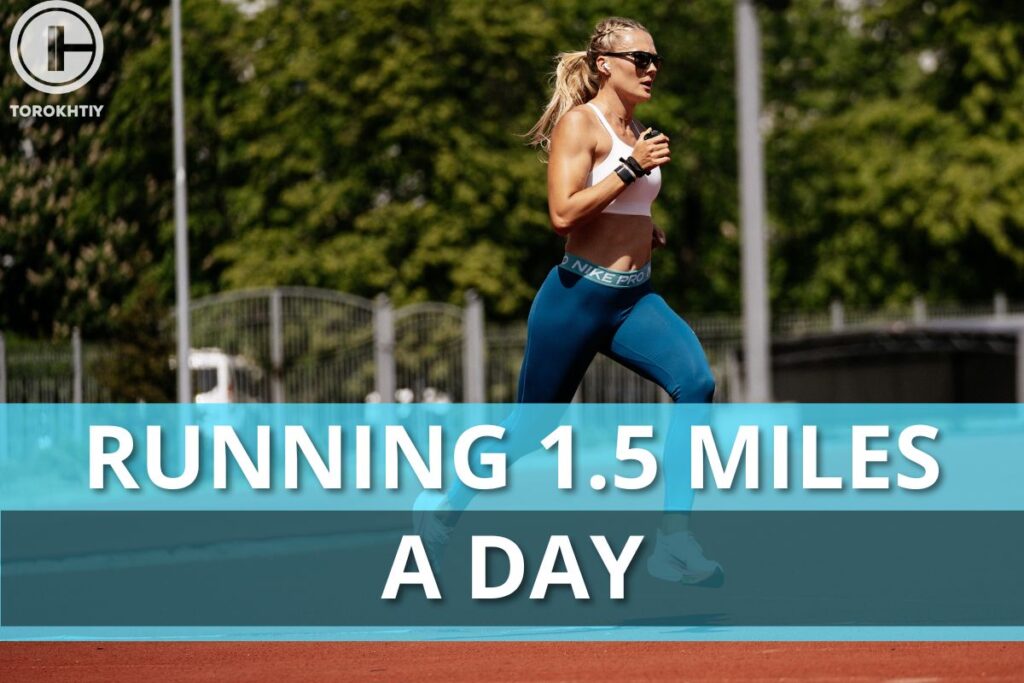
How Far Is 1.5 Miles?
Understanding the distance of a 1.5-mile run sets the stage for runners looking to chart their fitness journey. Equating to roughly 2.4 kilometers, it’s a manageable yet challenging distance that has become a staple in many running routines.
Most people can run this distance in 3,000 to 3,750 steps, depending on their age, height and stride length. Here’s a table demonstrating an average number of steps for 1.5 miles distance:
| Activity type | Men Steps | Women Steps |
|---|---|---|
| Very slow walk (<2mph) | 5156 | 5331 |
| Slow walk (2mph) | 4205 | 4380 |
| Average walk (3mph) | 3254 | 3429 |
| Brisk walk (4mph) | 2778 | 2954 |
| Jog (5mph) | 2753 | 2874 |
| Run (6mph) | 2322 | 2444 |
| Fast run (7.5mph) | 1892 | 2013 |
| Fast run (7.5mph) | 1461 | 1583 |
Some runners pick 1.5 miles to stay fit or get faster at running longer distances. It can be just the right length for busy days or when starting a new exercise habit.
6 Benefits of Running 1.5 Miles a Day
Embarking on a daily 1.5-mile run can unlock various health benefits. Let’s discuss them in more details:
✅ Improved Cardiovascular Health
Running 1.5 miles every day gives your heart a great workout, as it gets stronger and pumps blood more easily. This means you lower the risk of heart disease and could live longer, all because you put on your running shoes regularly.
✅ Increased Endurance and Energy
Runners gain more stamina with each 1.5-mile run. Your heart and lungs work hard, which makes them stronger, and this means you can go longer without getting tired.
As your body gets used to running, you feel more energy during the day. Your muscles also get stronger from daily runs, so they can do more before feeling worn out.

✅ Strengthened Muscles and Bones
Running 1.5 miles every day works your whole body. Your leg muscles get strong from pushing you forward. But it’s not just your legs – your core and arms also work hard when you run, which helps them get stronger too. Think of running as a full-body workout that makes all of your muscles tough.
Besides, high-impact exercises like hitting the pavement with each step can make bones denser and tougher than lifting weights alone.
✅ Weight Loss and Maintenance
Running every day helps people stay at a good weight. If you run 1.5 miles daily, you have a better chance of losing extra pounds and maintaining healthy weight. Running boosts calorie burn not just during exercise, but also afterward as the body recovers.
✅ Improved Mood and Reduced Stress
Hitting the 1.5-mile mark can leave you feeling happier and more relaxed. It’s like a natural boost to your day, pumping up your mood and clearing out stress. When you run, your body releases chemicals called endorphins, which make you feel good all over.
✅ Better Sleep
Running 1.5 miles a day does wonders for your night-time rest as well. Your body works hard during the run and then needs time to recover and fix muscles while you sleep.
Hitting the track daily sets up a healthy pattern that tells your mind it’s time to shut down at night. You’ll notice how running helps you fall asleep faster and dive into deeper sleep.
Is Running 1.5 Miles a Day Good?
Running 1.5 miles daily is a good load for your body – enough to engage the heart and muscles without overloading them. It’s that consistent, manageable challenge which encourages progress in both beginners and seasoned runners alike.
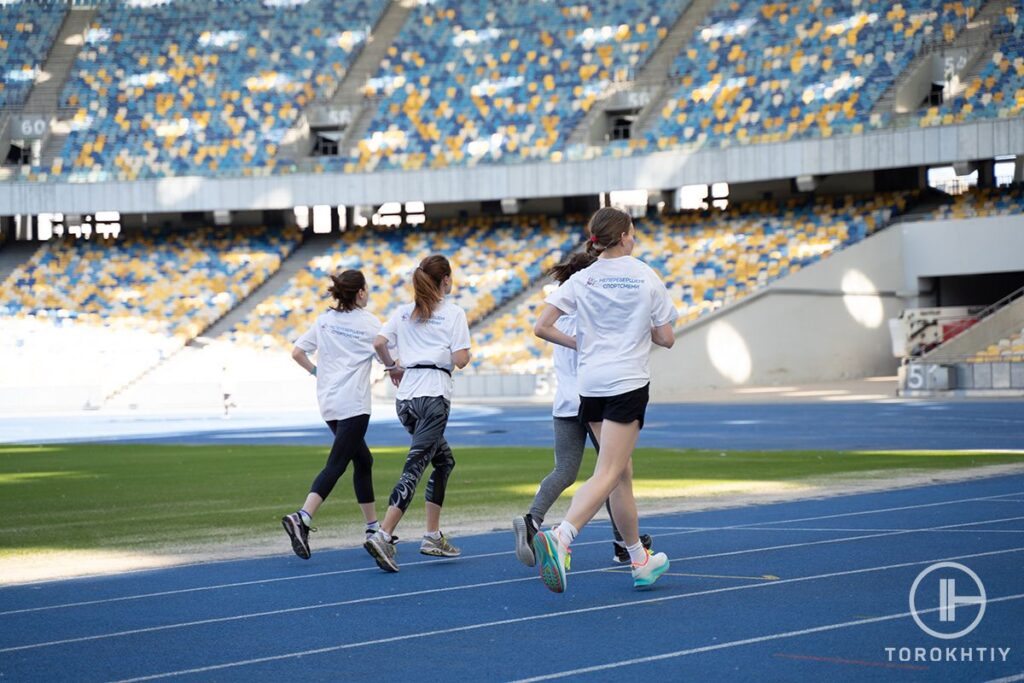
Is It Good to Run 1.5 Miles Every Day?
Yes, running 1.5 miles every day is a great idea for many people who enjoy running and want to stay healthy. Doing this kind of cardiovascular exercise can cut down the risk of heart attacks and strokes.
People don’t need to run fast, as even going at a slow pace can bring these health benefits. This daily physical activity pumps up heart health and helps build endurance, so runners feel stronger mile after mile.
Average Time to Run 1.5 Miles
The average 1.5 mile time can vary widely — factors like age, fitness level, gender, and pace all play their part.
Here is a table showing the average 1.5-mile run time by age, gender and experience level:
| Age | Men Beginners | Men Intermediate | Men Advanced | Women Beginners | Women Intermediate | Women Advanced |
|---|---|---|---|---|---|---|
| 20‑25 | 14:37 | 10:21 | 09:01 | 16:29 | 12:03 | 10:36 |
| 25‑30 | 14:37 | 10:21 | 09:01 | 16:29 | 12:03 | 10:36 |
| 30‑35 | 14:45 | 10:26 | 09:06 | 16:32 | 12:06 | 10:38 |
| 35‑40 | 15:06 | 10:42 | 09:18 | 16:44 | 12:16 | 10:47 |
| 40‑45 | 15:38 | 11:06 | 09:40 | 17:15 | 12:32 | 11:04 |
| 45‑50 | 16:12 | 11:32 | 10:01 | 17:56 | 13:06 | 11:36 |
| 50‑55 | 16:48 | 12:00 | 10:26 | 15:56 | 13:54 | 12:14 |
| 55‑60 | 17:38 | 12:28 | 10:54 | 19:00 | 14:42 | 12:48 |
| 60+ | 18:47 | 13:18 | 11:35 | 17:32 | 15:08 | 13:19 |
These numbers help runners set goals to beat their own best times or even compete with others in their group.
But remember that all people run differently. Running times vary a lot between younger runners and older ones, as young athletes often run faster because their bodies are strong and full of energy. Your pace and how often you run play big roles in how fast you can do 1.5 miles.
New runners might take longer because they are just starting out and need time to build up speed and strength.
What Is a Good 1.5 Mile Time?
A good 1.5 mile time can differ, depending on whether you’re just starting out or you’ve been running for a while. For beginners, finishing the distance without stopping is already an achievement.
Over time, they often aim to complete it in less than 15 minutes. More experienced runners shoot for 1.5 miles in 13 minutes or less, which means keeping up a pace of about 7-7.5 minutes per mile. Men aiming for top performance may look to hit around 9-10 minutes, while a good time for pro female runners is about 1.5 miles in 10 minutes pace.
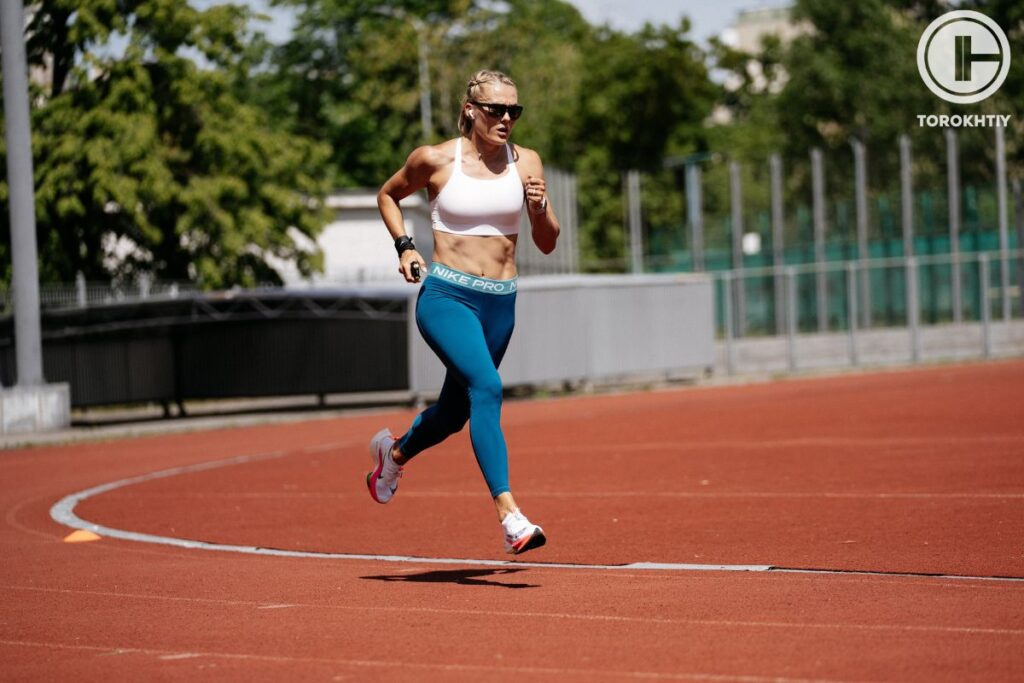
Running Time Calculator: 1.5 Miles Run Time
Our calculator will help you in estimating the time needed for a 1.5-mile run. With a taking individual factors like gender, training level, and age. Taking into account individual factors such as gender, training level, and age, you will know your approximate time to complete this distance.
Running Time Calculator
Result:
How to Improve Your 1.5 Mile Run Time?
Looking to up your pace? With dedication and the right strategies, you could see a noticeable difference in your 1.5-mile run time in as little as 2-4 weeks. Discover how following your routine can lead to improvements on the track:
1. Building Endurance
To build endurance, runners need to push their bodies regularly. Running 1.5 miles every day is a great way to make the heart and lungs stronger, building your cardiovascular health. As you keep at it, your muscles learn to work longer without getting tired.
Tips From the Champ
Doing daily runs helps runners get better at not feeling so worn out when they run long distances. Their bodies get used to working hard without a break, which makes them able to do more over time.
Running Coach Nike Run Club Kyiv
2. Increasing Mileage
Runners often aim to boost their mileage to aid in building with stamina and heart health. Yet, it’s key to do this in a smart way to avoid high injury risk. Slowly adding miles up to 10% of weekly mileage is a safe plan so your body gets used to longer runs without extra load.
3. Incorporating Speed Workouts
To get faster and stronger, runners can mix speed workouts into their training. These include sprint training, fast-paced workouts, and interval training. Speed sessions help build a powerful stride and make muscles strong, so you can see the first results in 2-3 weeks of training.
You can try tempo runs or high-speed training to improve your pace. This kind of workout makes bones and tissues in the body stronger. By adding quick running sessions or acceleration drills to regular runs, your run time can decrease greatly.
4. Running Hill Sprints
Sprinting uphill makes leg muscles stronger helping runners to avoid injuries. Runners who add hill training to their routine may find they have more stamina just in one month of training. Going up a slope is hard work, but it pays off in muscle strength, mental and physical endurance.
5. Focusing on Form and Cadence
Good running form means moving with ease and not wasting energy. Mainly, it’s about keeping your body aligned and using your legs well, helping you run faster without getting as tired.
Cadence is all about the rhythm of your steps. Think of it like the beat of a song that gets your feet moving quick and light. A higher cadence usually means shorter, quicker strides, which can help you use less effort for each step because you’re not hitting the ground as hard.
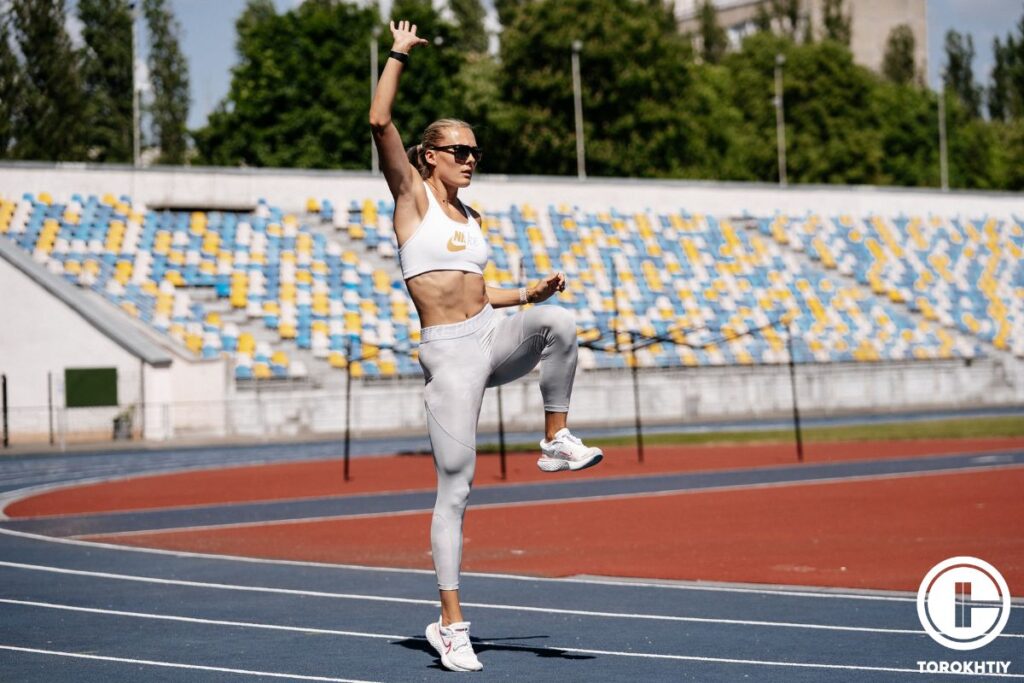
6. Adding Strength Training
Mixing up running with strength training is a smart move, which makes you stronger and fitter. Lifting weights or doing bodyweight exercises can boost your muscles and bones, leading to better runs, weight control, and healthy joints.
Tips From the Champ
Try high-intensity interval training. Incorporate resistance training, lunges, glute bridges, planks and calf raises. It can help you build leg and core muscles and improve your running speed.
Running Coach Nike Run Club Kyiv
Hoka Bondi 8
- Material: Breathable and supportive mesh upper
- Sole Material: Full-length EVA midsole for maximum cushioning
- Outsole (tread feature): Durable rubber outsole with a unique lug pattern
- Drop: 4mm
- Season: Suitable for all seasons
- Special Features: Exceptional cushioning and comfort
- Size: Available in various sizes
- Type: Maximum cushioning running shoe
If you want excellent running or walking shoes or just footwear you’ll be comfortable in, you can’t go wrong with the Hoka Bondi 8.
It’s been upgraded and now they have lighter, softer materials and a new extended heel design. The heel design gives a super soft, balanced feeling from th emoment your heel hits the ground to when you push off with your toes.
As far as the weight goes, it’s around 10.80 ounces, and the heel drop is 4 mm. They’re not too heavy and the lower drop is a good balance between cushioning and feeling connected to the ground.
The Bondi 8 is focused on cushioning and keeps things simple. There’s a good amount of support without any extra stuff that you don’t really need and that would only jack up the price. Take the rear crash pad, for example – it makes for a soft, smooth ride, which is perfect if you like to run outdoors.
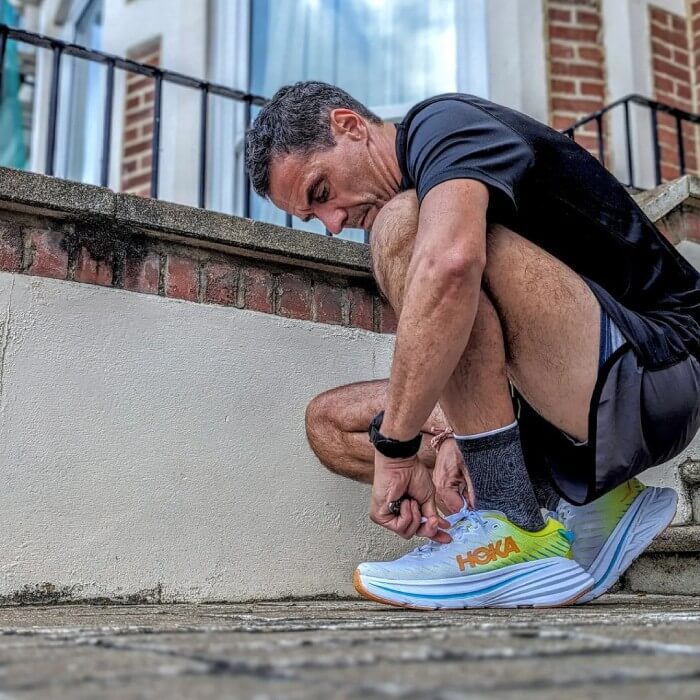
The upper part is made of engineered mesh, which is breathable and keeps your feet cool and dry. The tongue and collar have memory foam and mold to your foot shape. All of these features make the fit snug but flexible, which is exactly what you would want.
The Bondi 8 is eco-friendly because it uses recyclable materials in parts like the mesh and the sockliner. Plus, the shoes are completely vegan, which (if that’s important to you) is nice!
FAQ
Will Running 1.5 Miles a Day Help Lose Weight?
Running 1.5 miles every day can be a powerful way to shed pounds. Your body keeps burning calories even after you’ve finished running, which helps with weight loss. It’s not just about the exercise itself – regular running can also make you less likely to crave for unhealthy snacks.
Is It Possible to Run 1.5 Miles Without Training?
Sure, most people could probably push through a mile and a half run with no training. However, it’s not the best idea. Without getting ready for this kind of activity, runners risk hurting themselves. Muscle fatigue and soreness are common if the body isn’t used to this level of exercise.
How to Run 1.5 Miles without Stopping?
Start by mixing walking with running to build stamina – run a bit, then walk a bit in comfortable intervals. This helps your body get used to the effort without getting too tired. Gradually increase the duration of your run and shorten your walks until you’re running the whole distance.
How Many Calories Do You Burn by Running 1.5 Miles?
Typically, a run of this distance helps you lose around 150 calories — but it’s not the same for everyone. Your weight and speed really matter here. For example, a person who weighs 140lbs can burn about 13.2 calories per minute at a moderate pace of 5mph.
Conclusion
Running 1.5 miles every day has great benefits for your health. It boosts heart strength, reduces stress, and can make you feel more vigorous overall. Stronger bones and sound sleep are another great advantage.
So, lace up those sneakers and hit the pavement — your body will thank you. Remember, a daily run is a step toward feeling great!
How many miles do you run per day? How many times a week do you usually run? Please share your experience and tips in the comments below.
References:
- Christopher E Kline. “The bidirectional relationship between exercise and sleep: Implications for exercise adherence and sleep improvement.” American journal of lifestyle medicine vol. 8,6 (2014): 375-379. doi:10.1177/1559827614544437
- Duck-chul Lee, Russell R. Pate, Carl J. Lavie, Xuemei Sui, Timothy S. Church, Steven N. Blair. “Leisure-time running reduces all-cause and cardiovascular mortality risk.” Journal of the American College of Cardiology vol. 64,5 (2014): 472-81 doi:10.1016/j.jacc.2014.04.058
- Miles to Steps Calculator. https://www.thecalculatorsite.com/health/steps-miles.php (accessed January 18, 2024)
- Paul T Williams. “Greater weight loss from running than walking during a 6.2-yr prospective follow-up.” Medicine and science in sports and exercise vol. 45,4 (2013): 706-13. doi:10.1249/MSS.0b013e31827b0d0a
- “Running Times by Distance,” Running Level, https://runninglevel.com/running-times (accessed January 18, 2024)
- Photos by Torokhtiy Media Team.
Why Trust Us?
With over 20 years in Olympic weightlifting, strength training, nutrition coaching, and general fitness our team does its best to provide the audience with ultimate support and meet the needs and requirements of advanced athletes and professional lifters, as well as people who strive to open new opportunities and develop their physical capabilities with us.
By trusting the recommendations of our certified experts in coaching, nutrition, and sports training programming, as well as scientific consultants, and physiotherapists, we provide you with thorough, well-considered, and scientifically proven content. All the information given in the articles concerning workout programming, separate exercises, and athletic performance, in general, is based on verified data.
The product testing process is described in more detail here.
Oleksandr is a running coach and member of the Nike Run Club coaching team for 8 years. A participant in national and international competitions at distances from one kilometer to the ultra trail. Owner of mountain trail running camps. Nowadays Oleksandr is responsible for creating running training programs for athletes of various levels, coaching personally offline and online, conducts trail running camps in the mountains, participates in competitions.



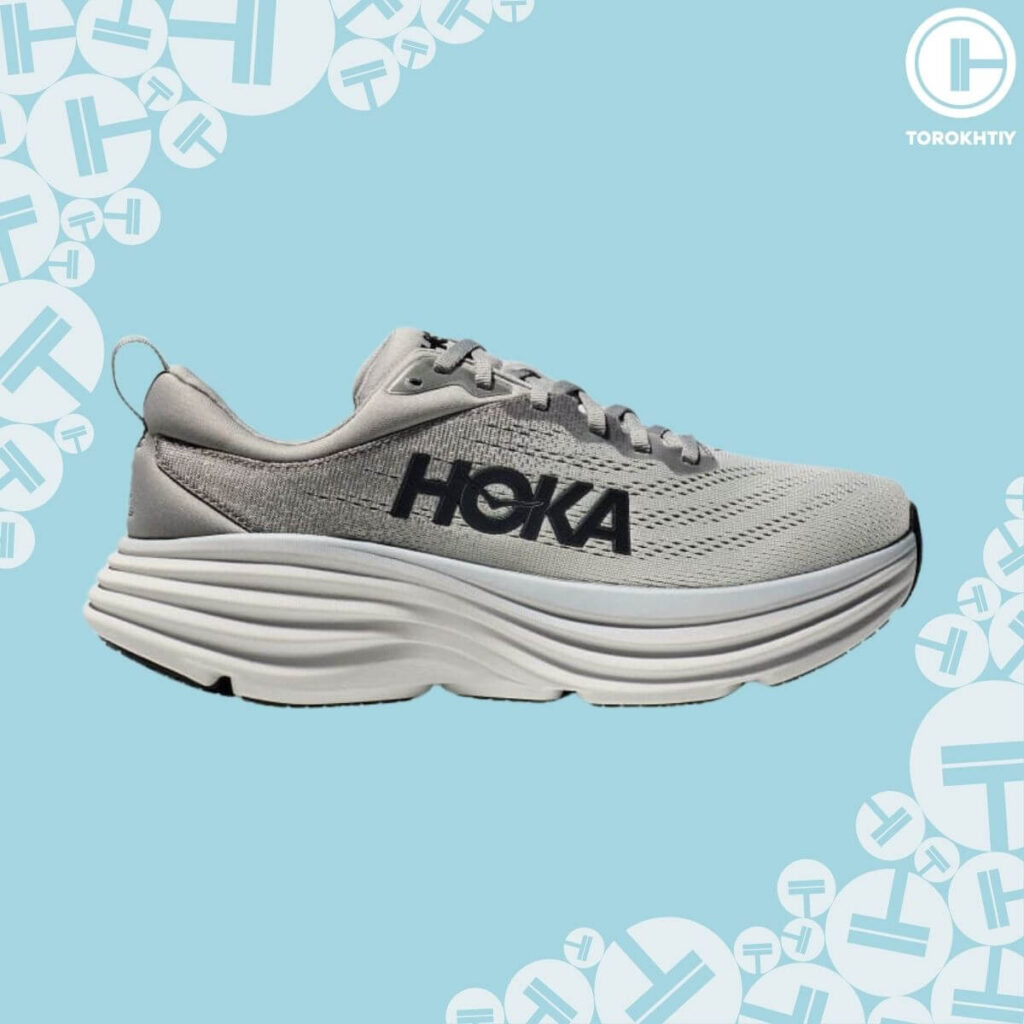
Still have questions after reading our article? Unlock your full potential by engaging with our experts and community! Don’t hesitate — leave a comment below and Oleksandr Zagrebelnyi will provide a personalized answer and insights to help you reach your goals.